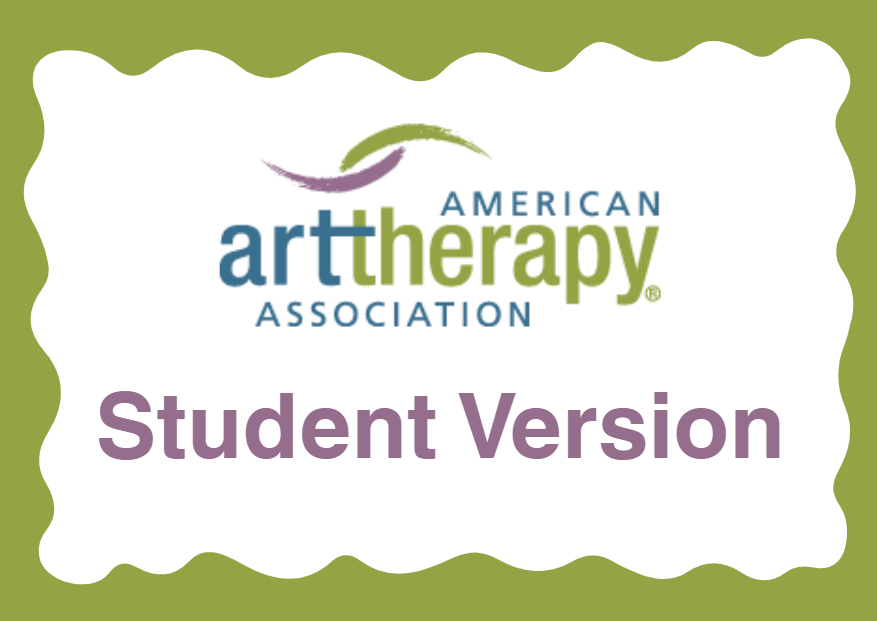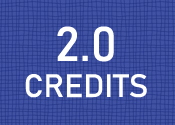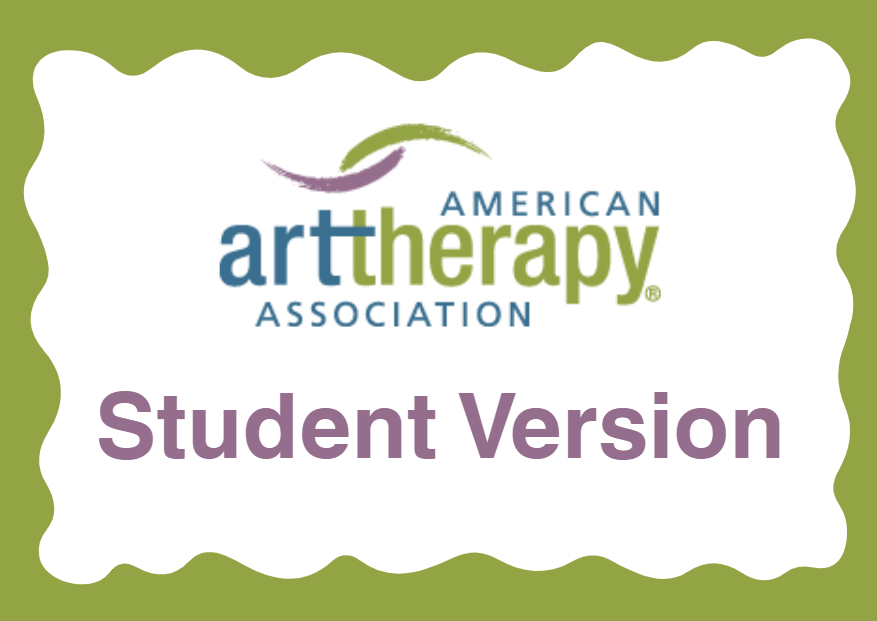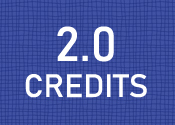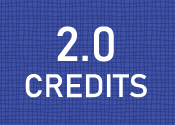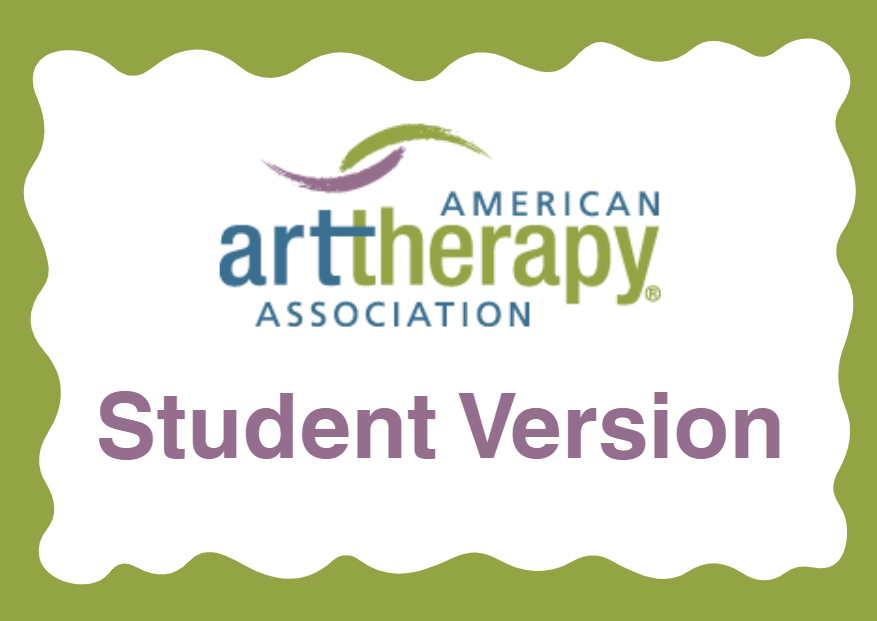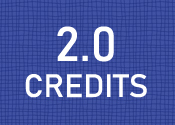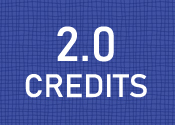
Catalog Advanced Search
-
Contains 2 Component(s) Recorded On: 06/17/2025
Join us this Pride Month for a unique continuing education opportunity exploring the intersection of art therapy and queer worldmaking! The Student Version is not CE eligible.
Description:
Join us this Pride Month for a unique continuing education opportunity exploring the intersection of art therapy and queer worldmaking. This session introduces foundational concepts of queer worldmaking and offers practical insights into how art therapists can incorporate these transformative ideas into their clinical practice. We’ll examine the therapist’s role as ally, advocate, and activist, emphasizing how creative expression can support inclusive, affirming therapeutic environments. This workshop is ideal for clinicians seeking to expand their cultural competency and deepen their commitment to LGBTQIA+ communities through art-based approaches.
Learning Objectives:Participants will be able to:
- Describe what queer world making is within art therapy.
- Leave the discussion able to name at least 3 tools and prompts for inclusive, affirming practice.
- Name ways of engaging with allyship, advocacy, and activism.
Additional Information:
- This version is not CEU eligible.

Kachina Mooney
MA, LPC, ATR-BC
Kachina Mooney, MA, LPC, ATR-BC is a leader in the field of art therapy and counseling, dedicated to clinical practice, advocacy work, and fostering inclusivity and belonging. With her expertise in using art as a therapeutic tool, she has made significant contributions to the mental health, well-being, and resilience of diverse populations, including LGBTQIA+ individuals, immigrants, and asylum seekers. These contributions include facilitating individual, family, and group art therapy, and being a tireless advocate in the pursuit of the highest quality of care for her clients, and dedicating her time and practice to promoting meaning-making and personal transformation. Kachina’s leadership extends beyond her clinical expertise as she also serves as a clinical supervisor, art therapy educator, and strong advocate for an art therapy license in Pennsylvania, where she resides. The strategic vision and commitment that Kachina holds to ethical art therapy practices have earned her recognition as a leader in the community. Outside of the art therapy world, Kachina enjoys spending her days with her elder cats and partners in the Pittsburgh region.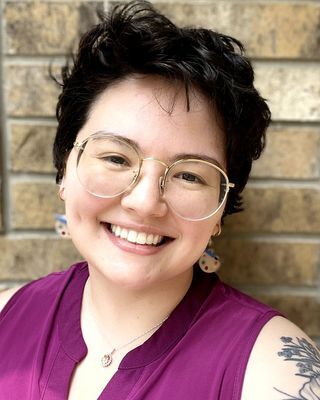
Sara Blevins-Ranes
MA, ATR, LPC
Sara Blevins-Ranes, MA, LPC, ATR-BC (they/them) is a queer art therapist based out of San Antonio, TX. Sara works with the LGBTQIA+ population and neurodiverse populations to assist with trauma recovery and post-traumatic growth. They are actively involved in the arts therapies community- co-authoring chapters and volunteering with both the Coalition for Queer Creative Arts Therapies, South Texas Art Therapy Association, the AATA mentoring program, and the Arts in Healing International Film Festival.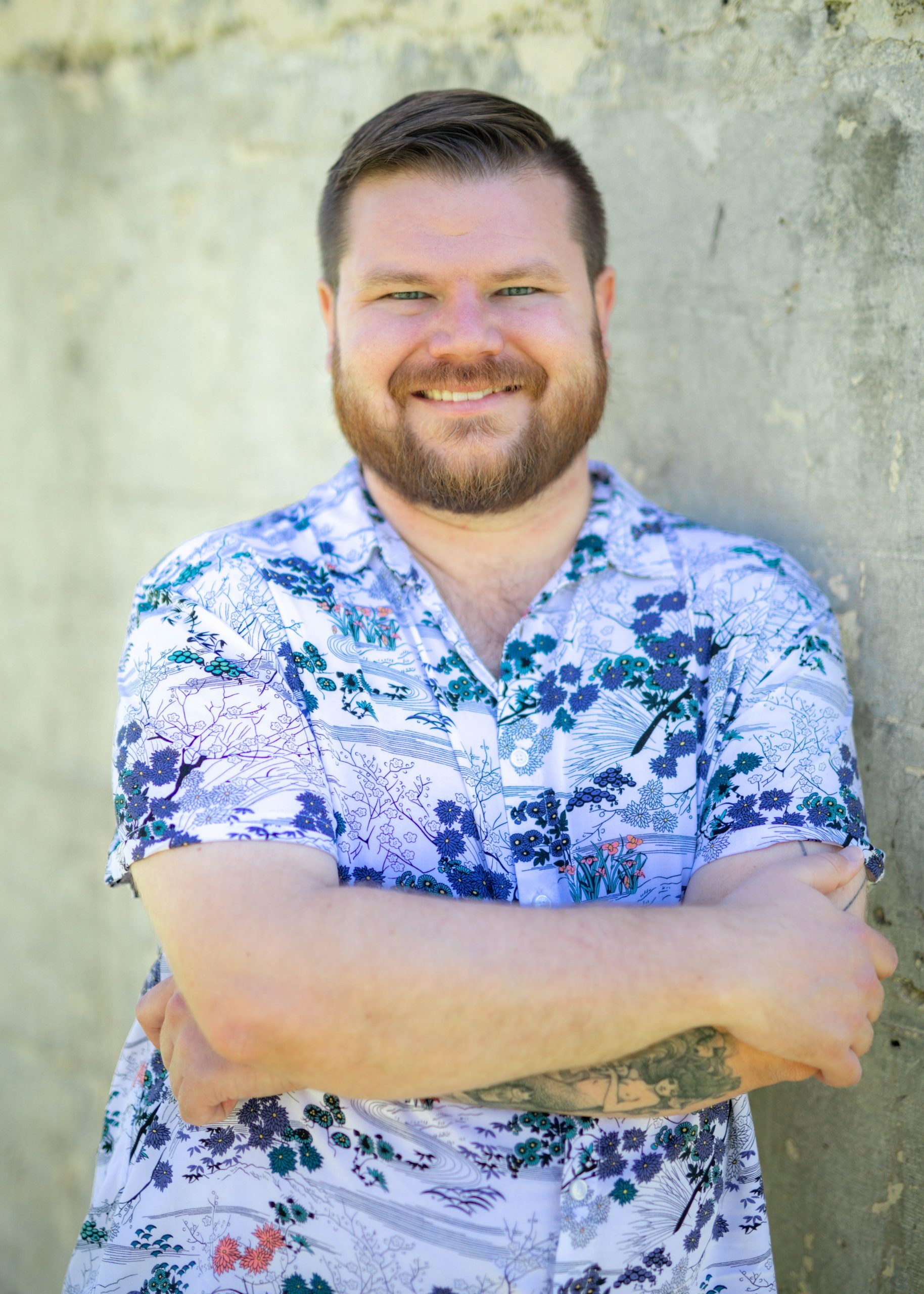
Nicholas Denson
MA, LCPC, LCADC, ATR-BC, NCC
Nicholas “Nick” Denson, MA, LCPC, LCADC, ATR-BC, NCC (he/him) is a queer art therapist, licensed professional counselor, and clinical alcohol and drug counselor based in Las Vegas, Nevada. He works full time as a Military and Family Life Counselor with the United States Air Force, offering brief, solution-focused, non-medical support to service members and their families. His work centers on affirming care, trauma-informed practice, and expressive therapies that support agency and connection.-
Register
- Member - Free!
- More Information
-
Contains 4 Component(s), Includes Credits Recorded On: 06/17/2025
[Self-Study] Queer Worldmaking in Art Therapy: Affirming Queer/Trans Lives Through Creative Practice
Join us this Pride Month for a unique continuing education opportunity exploring the intersection of art therapy and queer worldmaking! Eligible for 2.0 CEU hours.
Description:
Join us this Pride Month for a unique continuing education opportunity exploring the intersection of art therapy and queer worldmaking. This session introduces foundational concepts of queer worldmaking and offers practical insights into how art therapists can incorporate these transformative ideas into their clinical practice. We’ll examine the therapist’s role as ally, advocate, and activist, emphasizing how creative expression can support inclusive, affirming therapeutic environments. This workshop is ideal for clinicians seeking to expand their cultural competency and deepen their commitment to LGBTQIA+ communities through art-based approaches.
Learning Objectives:Participants will be able to:
- Describe what queer world making is within art therapy.
- Leave the discussion able to name at least 3 tools and prompts for inclusive, affirming practice.
- Name ways of engaging with allyship, advocacy, and activism.
Additional Information:
- This session is worth 2 CEUs

Kachina Mooney
MA, LPC, ATR-BC
Kachina Mooney, MA, LPC, ATR-BC is a leader in the field of art therapy and counseling, dedicated to clinical practice, advocacy work, and fostering inclusivity and belonging. With her expertise in using art as a therapeutic tool, she has made significant contributions to the mental health, well-being, and resilience of diverse populations, including LGBTQIA+ individuals, immigrants, and asylum seekers. These contributions include facilitating individual, family, and group art therapy, and being a tireless advocate in the pursuit of the highest quality of care for her clients, and dedicating her time and practice to promoting meaning-making and personal transformation. Kachina’s leadership extends beyond her clinical expertise as she also serves as a clinical supervisor, art therapy educator, and strong advocate for an art therapy license in Pennsylvania, where she resides. The strategic vision and commitment that Kachina holds to ethical art therapy practices have earned her recognition as a leader in the community. Outside of the art therapy world, Kachina enjoys spending her days with her elder cats and partners in the Pittsburgh region.
Sara Blevins-Ranes
MA, ATR, LPC
Sara Blevins-Ranes, MA, LPC, ATR-BC (they/them) is a queer art therapist based out of San Antonio, TX. Sara works with the LGBTQIA+ population and neurodiverse populations to assist with trauma recovery and post-traumatic growth. They are actively involved in the arts therapies community- co-authoring chapters and volunteering with both the Coalition for Queer Creative Arts Therapies, South Texas Art Therapy Association, the AATA mentoring program, and the Arts in Healing International Film Festival.
Nicholas Denson
MA, LCPC, LCADC, ATR-BC, NCC
Nicholas “Nick” Denson, MA, LCPC, LCADC, ATR-BC, NCC (he/him) is a queer art therapist, licensed professional counselor, and clinical alcohol and drug counselor based in Las Vegas, Nevada. He works full time as a Military and Family Life Counselor with the United States Air Force, offering brief, solution-focused, non-medical support to service members and their families. His work centers on affirming care, trauma-informed practice, and expressive therapies that support agency and connection.-
Register
- Non-member - $82
- Member - $52
- More Information
-
Contains 2 Component(s) Recorded On: 05/27/2025
Join us for a reflective and creative experience designed to help professionals navigate burnout. The Student Version is not CE eligible.
Description:
Feeling the weight of your work? Join us for a reflective and creative experience designed for helping professionals navigating burnout. Through art-making, discussion, and wellness-based tools, we’ll explore the emotional toll of caregiving, the cycle of connection and loss, and practical ways to care for ourselves while continuing to care for others.
Learning Objectives:Participants will be able to:
- Identify at least three personal indicators of burnout and distinguish between "caring burnout" and "meaning burnout" in clinical practice.
- Describe the four phases of the Cycle of Caring and explain their implications for therapeutic engagement and practitioner fatigue.
- Create a personalized wellness plan or self-care wheel that incorporates at least five key domains of well-being.
Additional Information:
- This version is not CEU eligiable.
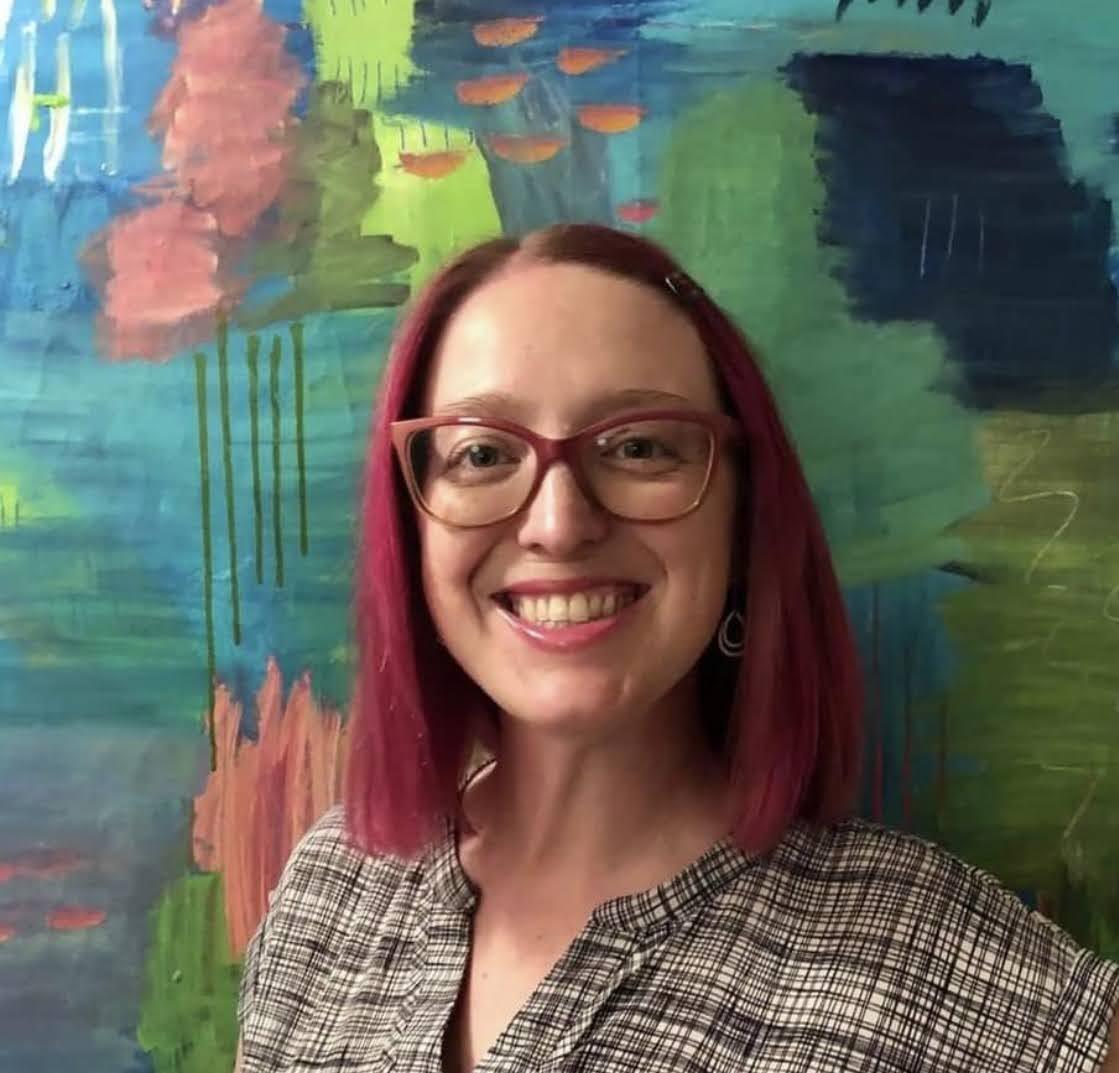
Rachel Mims
MS, LPC, LPC-AT-S, ATR-BC
Rachel Mims is a U.S. Army Veteran, Board Certified Art Therapist, and License Professional Counselor Supervisor. Rachel graduated from Florida State University in 2014 and worked with veterans and their families in higher education, with non-profit organizations, and as part of the local mental health authority for 10 years. She currently works in private practice providing supervision to new therapists and individual services for women, LGTBQ+ Folx, and veterans who have experienced trauma, are neurodivergent, and/or have chronic health conditions. Rachel previously served at the chapter level with the North Texas Art Therapy Association and has served on the AATA Board of Directors since 2023.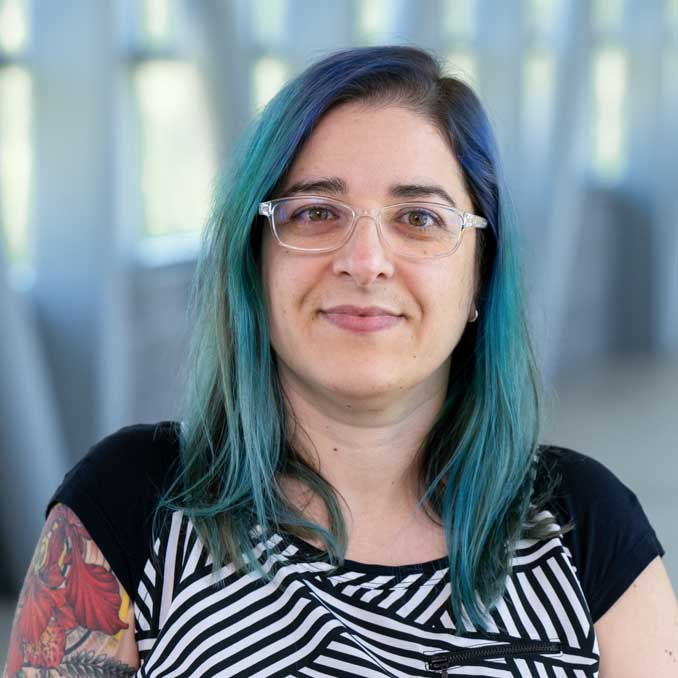
Sheila Lorenzo De La Pena
PhD, ATR-BC, ATCS
Sheila Lorenzo de la Peña is an Assistant Professor of art therapy in the Department of Psychology, Counseling, and Art Therapy. She obtained her MS and PhD from Florida State University and worked for 13 years with adults living with chronic mental health illness in a forensic setting. Her publications include topics on material use and adaptations, virtual open studio approaches for wellness, and clinician self-care.
Dr. Lorenzo also coordinates the community art studio and the virtual studio(s) offered through her department. She hosts workshops and webinars at the local, state, national, and international level. Topics of interest include weaving creative practices into our lives for wellness, accessible and adaptive means of visual arts expression, and sustainable creative practices for processing and documentation of our lived experiences.
Presently, an associate editor for the Journal of the American Art Therapy Association. Sheila is constantly creating, exploring, and plotting the next creative endeavor.

LaToya Pegram
ATR-BC, LPAT, LPC, NCC
LaToya Pegram believes in William James’ words that, “the great use of life is to spend it for something that will outlast it.” However, to create the “outlast” one must understand Albert Pine’s words that “What we do for ourselves dies with us; what we do for others and the world remains and is immortal.” Pegram has spent her life teaching, mentoring, and helping develop individuals’ spiritually, mentally, emotionally, physically and in higher education as a board-certified Art Therapist and licensed counselor. Pegram received her training from The University of Colorado (BA), The George Washington University where she obtained a Master of Arts in Art Therapy and The College of New Jersey where she acquired her Master of Arts in Marriage, Family, and Couple’s therapy and Counseling. When Pegram is not counseling, she spends her past time with family, helping others, offering couples’ guidance, supporting local businesses, volunteering as a chef at a soup kitchen for seniors, feeding the homeless, teaching vacation bible school and baking. She has participated at AATA Conferences as an attendee, presenter, and workshop assistant and participates on the Multicultural Committee of the AATA.
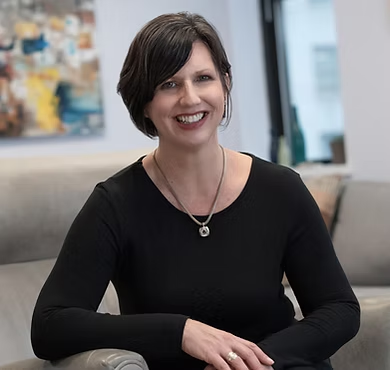
Kathryn Snyder
MA, ATR-BC, LPC, PhD
Kathryn Snyder is a board-certified art therapist, licensed professional counselor, and founder of Parent to Child Therapy Associates and Spark School-Based Art Therapy in Philadelphia. With over 20 years of clinical experience, she specializes in integrative mental health care for children, young adults, and families, emphasizing early intervention for developmental, emotional, and learning challenges. Kathryn is also known for her expertise in postpartum support and group programming focused on social skills and emotional regulation. Through Spark, she has expanded access to art therapy in public and charter schools, particularly for underserved and immigrant populations. A PhD candidate at Drexel University, Kathryn’s research explores the impact of art therapy on emergent literacy in preschoolers and broader applications in pediatric care and museum-based therapy. She also teaches and presents her work nationally.
-
Register
- Member - Free!
- More Information
-
Contains 4 Component(s), Includes Credits Recorded On: 05/27/2025
Join us for a reflective and creative experience designed to help professionals navigate burnout. Eligible for 2.0 CEU hours.
Description:
Feeling the weight of your work? Join us for a reflective and creative experience designed for helping professionals navigating burnout. Through art-making, discussion, and wellness-based tools, we’ll explore the emotional toll of caregiving, the cycle of connection and loss, and practical ways to care for ourselves while continuing to care for others.
Learning Objectives:Participants will be able to:
- Identify at least three personal indicators of burnout and distinguish between "caring burnout" and "meaning burnout" in clinical practice.
- Describe the four phases of the Cycle of Caring and explain their implications for therapeutic engagement and practitioner fatigue.
- Create a personalized wellness plan or self-care wheel that incorporates at least five key domains of well-being.
Additional Information:
- This session is worth 2 CEUs

Rachel Mims
MS, LPC, LPC-AT-S, ATR-BC
Rachel Mims is a U.S. Army Veteran, Board Certified Art Therapist, and License Professional Counselor Supervisor. Rachel graduated from Florida State University in 2014 and worked with veterans and their families in higher education, with non-profit organizations, and as part of the local mental health authority for 10 years. She currently works in private practice providing supervision to new therapists and individual services for women, LGTBQ+ Folx, and veterans who have experienced trauma, are neurodivergent, and/or have chronic health conditions. Rachel previously served at the chapter level with the North Texas Art Therapy Association and has served on the AATA Board of Directors since 2023.
Sheila Lorenzo De La Pena
PhD, ATR-BC, ATCS
Sheila Lorenzo de la Peña is an Assistant Professor of art therapy in the Department of Psychology, Counseling, and Art Therapy. She obtained her MS and PhD from Florida State University and worked for 13 years with adults living with chronic mental health illness in a forensic setting. Her publications include topics on material use and adaptations, virtual open studio approaches for wellness, and clinician self-care.
Dr. Lorenzo also coordinates the community art studio and the virtual studio(s) offered through her department. She hosts workshops and webinars at the local, state, national, and international level. Topics of interest include weaving creative practices into our lives for wellness, accessible and adaptive means of visual arts expression, and sustainable creative practices for processing and documentation of our lived experiences.
Presently, an associate editor for the Journal of the American Art Therapy Association. Sheila is constantly creating, exploring, and plotting the next creative endeavor.

LaToya Pegram
ATR-BC, LPAT, LPC, NCC
LaToya Pegram believes in William James’ words that, “the great use of life is to spend it for something that will outlast it.” However, to create the “outlast” one must understand Albert Pine’s words that “What we do for ourselves dies with us; what we do for others and the world remains and is immortal.” Pegram has spent her life teaching, mentoring, and helping develop individuals’ spiritually, mentally, emotionally, physically and in higher education as a board-certified Art Therapist and licensed counselor. Pegram received her training from The University of Colorado (BA), The George Washington University where she obtained a Master of Arts in Art Therapy and The College of New Jersey where she acquired her Master of Arts in Marriage, Family, and Couple’s therapy and Counseling. When Pegram is not counseling, she spends her past time with family, helping others, offering couples’ guidance, supporting local businesses, volunteering as a chef at a soup kitchen for seniors, feeding the homeless, teaching vacation bible school and baking. She has participated at AATA Conferences as an attendee, presenter, and workshop assistant and participates on the Multicultural Committee of the AATA.

Kathryn Snyder
MA, ATR-BC, LPC, PhD
Kathryn Snyder is a board-certified art therapist, licensed professional counselor, and founder of Parent to Child Therapy Associates and Spark School-Based Art Therapy in Philadelphia. With over 20 years of clinical experience, she specializes in integrative mental health care for children, young adults, and families, emphasizing early intervention for developmental, emotional, and learning challenges. Kathryn is also known for her expertise in postpartum support and group programming focused on social skills and emotional regulation. Through Spark, she has expanded access to art therapy in public and charter schools, particularly for underserved and immigrant populations. A PhD candidate at Drexel University, Kathryn’s research explores the impact of art therapy on emergent literacy in preschoolers and broader applications in pediatric care and museum-based therapy. She also teaches and presents her work nationally.
-
Register
- Non-member - $82
- Member - Free!
- More Information
-
Contains 4 Component(s), Includes Credits Recorded On: 05/20/2025
Join us for a session Honoring Asian Heritage in Art Therapy! Eligible for 2.0 CEU hours.
Description:
This session weaves together personal narratives and professional insights to create a welcoming space for learning and reflection. Designed to resonate with individuals at all stages of their journey, it offers accessible yet thought-provoking perspectives. Reflections from practitioners and students in the U.S. and abroad will deepen understanding of oneself as an Asian-identified art therapist and support continued personal and professional growth.
Learning Objectives:Participants will be able to:
- Identify at least three ways Asian cultural heritage informs art therapy practices through shared narratives and professional experiences.
- Evaluate the impact of cultural identity on therapeutic approaches, self-care practices, and professional development.
- Use the developed actionable strategies for integrating culturally informed perspectives into their own art therapy practice.
Additional Information:
- This session is worth 2 CEUs
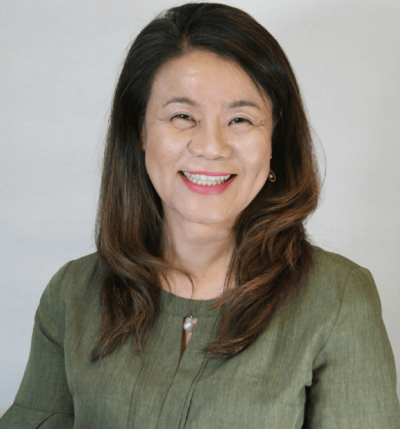
Maria Kim (Moderator)
PhD, ATR-BC, LMFT, LMHC
Dr. Maria Kim is Program Director of Creative Arts Therapy at Antioch University and serves on the AATA Board. Born and raised in Korea, she brings over 22 years of experience bridging clinical practice in the US, cultural identity, and creative expression. Her work centers on inclusive, trauma-informed, community-based art programs as preventative care. She continues to make bridges between the US, Korea, and China by providing community-based art programs. She is a former president of the Illinois Art Therapy Association and currently serves as a reviewer for The Arts in Psychotherapy. She is an AAMFT Approved Supervisor-in-Process.
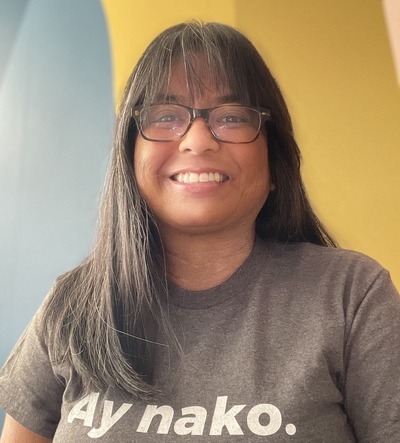
Fredelyn Calla
LCPC, ATR-BC
Fredelyn Calla, LCPC, ATR-BC, is a board-certified art therapist and has been in the field for almost 20 years. She is a Licensed Clinical Professional Counselor in Illinois and a Licensed Professional Counselor in Wisconsin. She is the owner of Kapwa Art Therapy and Counseling, PLLC, based in Chicago, IL. She provides individual therapy to AAPI-identified adults and art therapy supervision to students and new graduates. Also, she teaches art therapy classes to undergraduates at the School of the Art Institute of Chicago and Benedictine University.
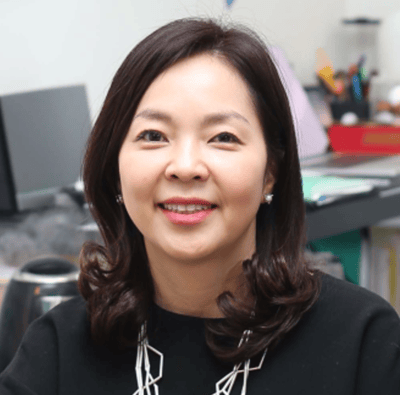
Sunhee Kim
PhD, ATR-BC, ATCS, LCAT
Dr. Sunhee K. Kim, PhD, ATR-BC, ATCS, LCAT, is a professor of art therapy at Seoul Women’s University in Korea, where she has been teaching graduate students for over a decade. She previously worked in New York City for 12 years following her completion of the art therapy program at New York University. Dr. Kim earned her PhD in Expressive Therapies from Lesley University in 2010. Her scholarly work has been presented internationally and published in journals such as The Arts in Psychotherapy and The Journal of Creativity in Mental Health. She currently serves on the editorial boards of The Arts in Psychotherapy and the Korean Journal of Art Therapy.
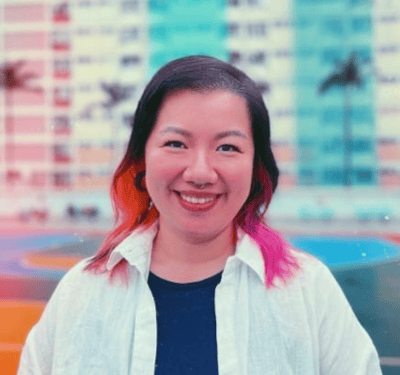
Ling Cheun Bianca Lee
PhD, ATR-BC, LMFT, LMHC
Dr. Ling Cheun Bianca Lee,李靈津 (they/she/佢) is an artist, advocate, Board-Certified Registered Art Therapist, and Licensed Professional Clinical Counselor, Licensed Mental Health Counselor. They are a doctoral candidate in Counselor Education and Supervision and a private practitioner in Hong Kong and the United States. Bianca is a teaching faculty at Antioch University Seattle. They were the former president of the Hong Kong Association of Art Therapists (2017-2021) and board members of nonprofit organizations such as the Neutral Ground Collective and Mental Health Liberation.
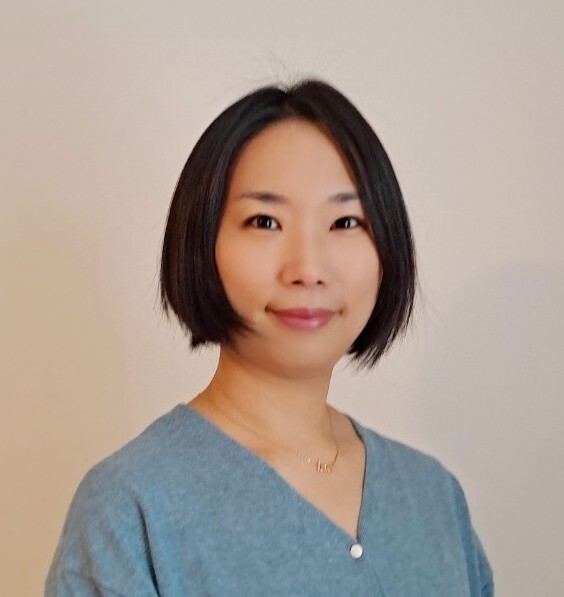
Anna Seo
Anna Seo is an Asian art therapist, artist, and researcher graduating from the Art Therapy and Counseling program at the School of the Art Institute of Chicago. Her work explores trauma, loss, and mourning, with a focus on symbolic expression as a pathway to healing. She is passionate about creating spaces where personal stories and cultural memories can be shared and expressed through art.
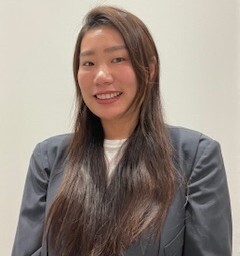
Yuqing Ren
Yuqing Ren ( 任 宇 清 ) is an emerging art therapist from mainland China, set to graduate in May 2025 with a Master’s degree in Art Therapy and Counseling from the School of the Art Institute of Chicago. Her therapeutic approach is grounded in Gestalt art therapy, emphasizing self-awareness, holistic integration, and creative presence. Yuqing integrates East Asian art techniques and philosophies—such as calligraphy, ink painting, and philosophies of balance and flow—into her practice, offering clients a culturally grounded and mindful art-making experience. She is passionate about using art therapy as a bridge between personal healing and community connection, having worked with children with autism and ADHD, as well as older adults navigating memory loss, verbal impairment and isolation. Passionate about the intersection of art and healing, Yuqing envisions creating spaces where art therapists and artists can collaborate, share, and engage the public through creative practice.
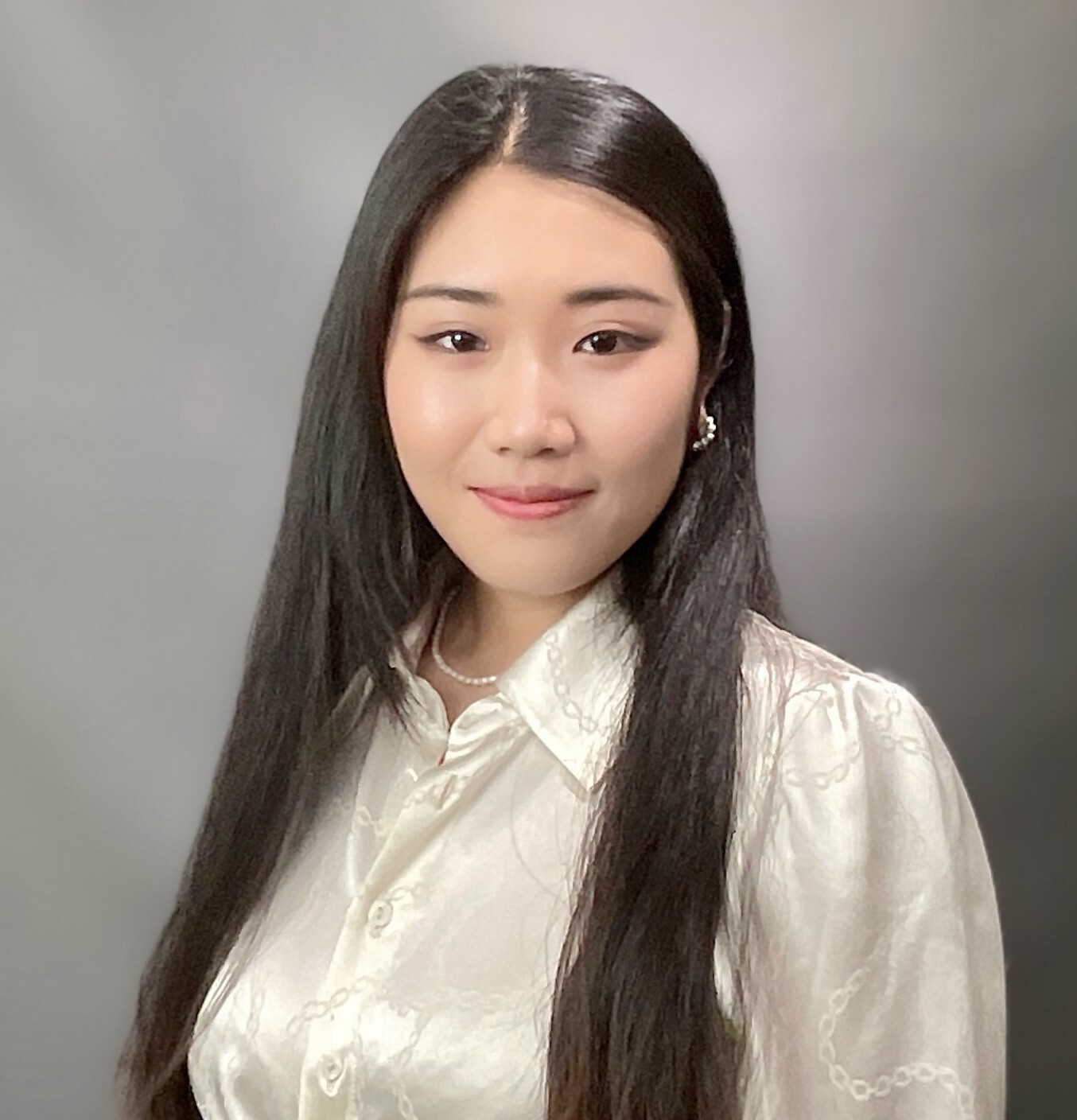
Yidi Wang
Yidi is a first-year Creative Arts Therapy Counseling student at Hofstra University and a service member in the U.S. Army. Her experiences working with veterans and patients in psychiatric units have motivated her to explore how art therapy supports transitions and personal growth. Immigrating to the U.S. in her twenties, Yidi has developed a deep understanding of both Chinese and American cultures, as well as the challenges of the acculturation process within Asian communities.

Rumi Chen
Rumi Chen is a Taiwanese student who came to the states last fall and now majors in Creative Arts Therapy Counseling for a master's degree in Hofstra University. Being in the field of art and design in my college and past work experiences, She is dedicating her skills to art therapy, hoping to help more people within the profession in the future.
-
Register
- Non-member - $82
- Member - $52
- More Information
-
Contains 3 Product(s)
Join us for this impactful 3-part CEU series exploring ethical decision-making across clinical practice. From evaluating clinical fit and navigating referral decisions (Session 1 with Anna O’Brien), to understanding therapist self-disclosure in social media and online resources (Session 2 with Deborah Fung, Lacy Mucklow, Gretchen Miller, and Alicia Seymour), to examining the ethical use of self-disclosure in both private practice and community mental health settings (Session 3 with Heather Grey and Deborah Fung)—this series offers timely insights and practical tools for clinicians at every stage. Strengthen your ethical awareness, refine your decision-making, and deepen your understanding of professional boundaries in today’s evolving therapeutic landscape. Earn up to 6.0 CEUs in Ethics—each 2.0 CEU session is eligible for NBCC, LCAT (N/NY), and ATCB credit.
Session 1 - Ethics of Clinical Referrals & Building a Sustainable Practice (N/NY)
Session Description:
Throughout our careers, we continually face critical questions: Do we have the necessary training and skills to treat each client? Are personal biases or countertransference influencing our therapeutic relationships? When should we refer a client rather than seek consultation and engage in our own self-reflection? How do we navigate the complexities of self-care, professional limitations, and available resources—especially when clear-cut answers are rare? And how do ethical codes and legal obligations shape these decisions?
Join us for a dynamic two-hour workshop on the essential skills of ethical clinical practice! Whether you're an experienced clinician or just beginning your journey, this session provides valuable insights into maintaining professional boundaries and making client-centered decisions—whether during consultation calls, in treatment, or when supporting after-care referrals. You'll walk away with a deeper understanding of the referral decision-making process and a practical decision-making flowchart to guide you when these challenges arise.
Session 2 - Ethical Topics: Self Disclosure in Social Media, Resources for Clients (N/NY)
Session Description:
This panel will discuss ethical considerations about therapist self-disclosure and social media, including precautions art therapists can take in their online communications and engagement. The panelists will also offer ways art therapists can navigate social media and online resources to support clientsSession 3 - Ethical Use of Self Disclosure in Clinical Practice both in Private Practice settings and Community Mental Healthcare Settings (N/NY)
Session Description:
Therapists self-disclose in many ways from the choice of jewelry adornment, and decorative elements in the therapy space, to verbal comments of self-disclosure. This presentation will discuss the ethics of using self-disclosure as a tool in therapy whether to build a therapeutic alliance, acknowledge familiarity, or prompt a client to consider an idea. The presentation will offer demonstrations of self-disclosure in clinical practice. The presentation will also address how different clinical settings influence therapist self-disclosure
Additional Information:
- Earn up to 6.0 CEUs in Ethics with this series. (Each session is worth 2 CEUs)
- Each session is eligible for NBCC and LCAT. (N/NY)
-
Register
- Non-member - $210
- Member - $138
- More Information
-
Register
-
Contains 2 Component(s) Recorded On: 04/29/2025
Join Deborah Fung & Heather Grey for the third session of our 2025 Ethics Series! The Student Version is not CE eligible.
Description:
Therapists self-disclose in many ways from the choice of jewelry adornment, and decorative elements in the therapy space, to verbal comments of self-disclosure. This presentation will discuss the ethics of using self-disclosure as a tool in therapy, whether to build a therapeutic alliance, acknowledge familiarity, or prompt a client to consider an idea. The presentation will offer demonstrations of self-disclosure in clinical practice. The presentation will also address how different clinical settings influence therapist self-disclosure.
Learning Objectives:Upon completion, participants will:
1. Be able to use an ethical framework when making a decision to self-disclose.
2. Learn to identify when self-disclosure is detrimental to the therapeutic process and when it is supportive.
3. Be able to use the components of effective self-disclosure in clinical practice.Additional Information:
- The Student Version is not CE eligible.
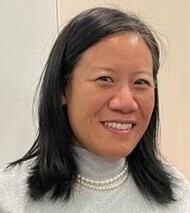
Deborah Fung (Moderator)
LCAT ATR-BC, LMSW
Deborah Fung LCAT ATR-BC, LMSW is a licensed creative arts therapist and licensed master social worker based in New York City. She works as a clinical coordinator in community mental health and continues to offer therapy to clients in the clinic and in private practice. Deborah Fung is a fieldwork supervisor for the NYU graduate art therapy program. Deborah Fung is also the chair of the AATA ethics committee. When not working, Deborah enjoys swimming, scuba diving, and painting.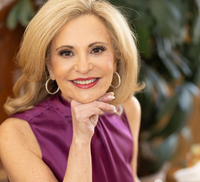
Heather Grey
LCSW, LCAT, ATR-BC, ATCS
Heather Grey, LCSW, LCAT, ATR-BC is a licensed clinical social worker, creative arts therapist, and certified supervisor who is dedicated to helping individuals and couples build deeply fulfilling, authentic relationships — both with themselves and others. With more than two decades of experience, Heather empowers clients to connect with their inner truths, achieve emotional clarity, and make confident life choices through a compassionate, strengths-based approach. Specializing in adult trauma-informed mental health and relationship counseling, Heather offers in-person sessions in New York City and remote telehealth services. With advanced training in Emotionally Focused Couples Therapy, Internal Family Systems, Interpersonal Therapy, Sex Therapy, EMDR, and Narcissistic Abuse Treatment, she tailors evidence-based practices to each client’s unique needs, guiding them toward emotional healing, self-mastery, and lasting personal growth.-
Register
- Member - Free!
- More Information
-
Contains 4 Component(s), Includes Credits Recorded On: 04/29/2025
Join Deborah Fung & Heather Grey for the third session of our 2025 Ethics Series! Eligible for 2.0 CEU hours.
Description:
Therapists self-disclose in many ways from the choice of jewelry adornment, and decorative elements in the therapy space, to verbal comments of self-disclosure. This presentation will discuss the ethics of using self-disclosure as a tool in therapy, whether to build a therapeutic alliance, acknowledge familiarity, or prompt a client to consider an idea. The presentation will offer demonstrations of self-disclosure in clinical practice. The presentation will also address how different clinical settings influence therapist self-disclosure.
Learning Objectives:Upon completion, participants will:
1. Be able to use an ethical framework when making a decision to self-disclose.
2. Learn to identify when self-disclosure is detrimental to the therapeutic process and when it is supportive.
3. Be able to use the components of effective self-disclosure in clinical practice.Additional Information:
- This session is worth 2 CEUs and is ATCB, NBCC & LCATs eligible.

Deborah Fung
LCAT ATR-BC, LMSW
Deborah Fung LCAT ATR-BC, LMSW is a licensed creative arts therapist and licensed master social worker based in New York City. She works as a clinical coordinator in community mental health and continues to offer therapy to clients in the clinic and in private practice. Deborah Fung is a fieldwork supervisor for the NYU graduate art therapy program. Deborah Fung is also the chair of the AATA ethics committee. When not working, Deborah enjoys swimming, scuba diving, and painting.
Heather Grey
LCSW, LCAT, ATR-BC, ATCS
Heather Grey, LCSW, LCAT, ATR-BC is a licensed clinical social worker, creative arts therapist, and certified supervisor who is dedicated to helping individuals and couples build deeply fulfilling, authentic relationships — both with themselves and others. With more than two decades of experience, Heather empowers clients to connect with their inner truths, achieve emotional clarity, and make confident life choices through a compassionate, strengths-based approach. Specializing in adult trauma-informed mental health and relationship counseling, Heather offers in-person sessions in New York City and remote telehealth services. With advanced training in Emotionally Focused Couples Therapy, Internal Family Systems, Interpersonal Therapy, Sex Therapy, EMDR, and Narcissistic Abuse Treatment, she tailors evidence-based practices to each client’s unique needs, guiding them toward emotional healing, self-mastery, and lasting personal growth.-
Register
- Non-member - $80
- Member - $55
- More Information
-
Contains 4 Component(s), Includes Credits Recorded On: 04/22/2025
Join Deborah Fung, Lacy Mucklow, Gretchen Miller & Alicia Seymour for the second session of our 2025 Ethics Series! Eligible for 2.0 CEU hours.
Description:
This panel discusses ethical considerations about therapist self-disclosure and social media, including precautions art therapists can take in their online communications and engagement. The panelists also offer ways art therapists can navigate social media and online resources to support clients.
Learning Objectives:Upon completion, participants will:
1. Learn two frameworks for thinking ethically about self-disclosure in social media.
2. Learn three practical steps to implement an ethical approach to their online presence.
3. Be able to identify three therapeutic risks and benefits of therapist self-disclosure on social media.Additional Information:
- This session is worth 2 CEUs and is ATCB, NBCC & LCATs eligible.

Deborah Fung (Moderator)
LCAT ATR-BC, LMSW
Deborah Fung LCAT ATR-BC, LMSW is a licensed creative arts therapist and licensed master social worker based in New York City. She works as a clinical coordinator in community mental health and continues to offer therapy to clients in the clinic and in private practice. Deborah Fung is a fieldwork supervisor for the NYU graduate art therapy program. Deborah Fung is also the chair of the AATA ethics committee. When not working, Deborah enjoys swimming, scuba diving, and painting.
Gretchen Miller
MA, LPAT, ATR-BC
Gretchen M. Miller, MA, LPAT, ATR-BC is a Registered Board Certified Licensed Professional Art Therapist in Northeast Ohio. Gretchen is also an art therapy educator, regional, national, and international speaker, workshop facilitator, supervisor, and community organizer. She is a past president of Ohio’s Buckeye Art Therapy Association, has served on the American Art Therapy Association’s Board of Directors, and is currently an associate editor of AATA’s Journal as a social media coordinator. Gretchen is the author of The Art Therapist’s Guide to Social Media: Connection, Community, and Creativity, has published several articles and chapters about technology use in art therapy, and regularly presents and teaches on the topic.Lacy Mucklow
MA, ATR-BC, LPAT-S, LCPAT, ATCS, CCTP, CIMHP
Lacy Mucklow (MA, ATR-BC, LPAT-S, LCPAT, ATCS, CCTP, CIMHP) is a registered, board-certified, and licensed art therapist and supervisor who has been practicing art therapy in the Washington, DC area since 1999. Lacy holds a BA in Psychology with a Studio Art minor from Oklahoma State University, an MA in Art Therapy from George Washington University, and is finishing her PhD in Mind-Body Medicine with an Integrative Mental Health specialization from Saybrook University. Currently, she works full-time with active duty service members in a military treatment facility, in private practice with teens and adults, and with cancer patients in a nonprofit organization. Lacy is a trained SoulCollage® Facilitator and certified in clinical trauma and integrative mental health. She also supervises graduate student interns from multiple universities as well as ATR & Licensure candidates. In her spare time, Lacy has authored 12 books and released two guided imagery mindfulness albums.Alicia Seymour
MA, ATR-P, NCC
Alicia Seymour, MA, ATR-P, NCC, specializes in grief and trauma from an existential, humanistic, and spiritual perspective. She currently owns a private practice, See More Art Therapy, in McDonough, GA where she works with a variety of clients experiencing loss, life adjustments, and identity reintegration. She is the author of Artful Grieving (2025) and has given numerous presentations, workshops, and interviews on the benefits of combining traditional grief counseling models with art therapy to improve client outcomes.-
Register
- Non-member - $80
- Member - $55
- More Information
-
Contains 3 Product(s)
Join Dr. Annette Vaccaro in this insightful 3-part CEU series exploring the developmental journey of supervision. Through engaging interviews with Cindy Concannon, Daniel Summer, and Dr. Traci Bitondo, each session delves into key stages of professional growth—from student professionals (Session 1), to emerging and experienced clinicians (Session 2), to those developing their own supervision practices (Session 3). Learn how supervisory roles, artmaking, and reflective practices evolve across the professional lifespan and discover practical strategies to support growth at every stage.
Session 1 - Understanding The Developmental Journey: Student Professional Growth and Supervision. (N/NY)
Session Description: What do students need? Explore the common experiences of students as novices and what they need to succeed. Discover the discrimination model’s roles of teacher, helper, listener, and consultant as well as a range of universal precautions intervention strategies that supervisors can utilize to protect the vulnerabilities of students while keeping them engaged. How does artmaking contribute to their development at this stage? By identifying the common developmental milestones of the student practitioner, the educator and supervisor becomes better equipped to effectively intervene and support the student by meeting them where they are developmentally. What are the unique struggles of second-career or interdisciplinary students?
Session 2 - Understanding The Developmental Journey: Growth in New to Experienced Professionals. (N/NY)
Session Description: What are the shared experiences in the transition from new professional to experienced professional? While new professionals may rely on the supervisor for concrete answers, how do they develop the capacity for self-assessment while continuing to grow within the supervisory relationship? Learn about the developmental shifts that can lead to experiences of stagnation or deep, meaningful work. How can professionals recognize when they are at risk of stagnation and what strategies can they use to overcome this phase? How does the supervisor become internalized over time leading to a capacity for autonomy? How do their needs for support, art making, and supervision also shift and how can supervisors' best position themselves to evolve in the supervisory relationship? Learn about the evolution that can offer a path of deeply satisfying work in the seasoned professional.
Session 3 - Understanding The Developmental Journey: Developing Supervisors and Supervision Practices. (N/NY)
Session Description: What do art therapy professionals need to make the transition to supervisor? What are the competencies of supervisors and how do they further evolve into master clinicians and become catalysts towards generativity in the field? The supervisory relationship can create a process that repeats with supervisee’s work with other clinicians that they, in turn, supervise. In that way, we are modeling how to be a supervisor in every moment of supervision. Senior clinicians become adept at moving through the roles of teacher, helper, listener, and consultant in the supervisory process. Learn a model that allows the supervisor to work with intent.
Additional Information:
- Earn up to 6.0 CEUs in Supervision with this series. (Each session is worth 2 CEUs)
- Each session is eligible for NBCC and LCAT. (N/NY)
-
Register
- Non-member - $210
- Member - $138
- More Information
-
Register
